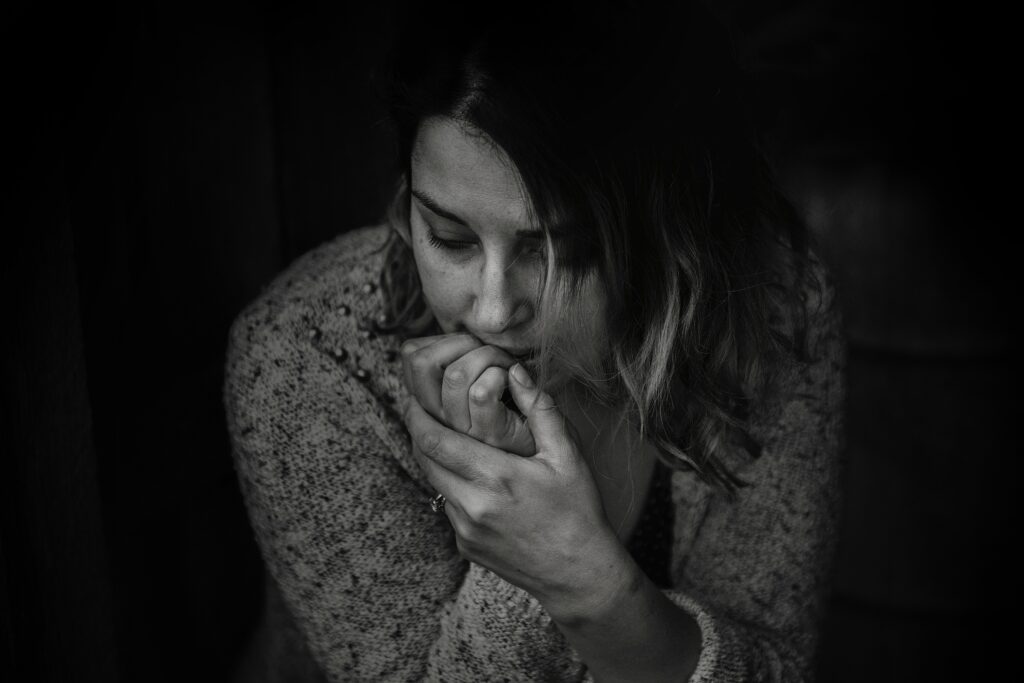
School is starting. Teens are beginning their academic year in junior high, high school, and college. Exciting and a little scary… for parents too. Do parents with social anxiety and panic pass it on to their kids? Anxiety disorders run rampant for this age group. General anxiety, social anxiety, and panic plagues many teens, along with co-morbid depression and bipolar depression.
Research confirms that a child who has a parent with anxiety holds a compounded risk of anxiety. It’s even more true if both parents have an anxiety diagnosis.
The more we understand that relationship the better prepared we are to help those parents’ offspring who are at risk. These conditions can be responsible for absence and avoidance of school. In fact, when they’re severe, it can become almost impossible for your teen to endure.
We know that genetic connections and watching an anxious parent respond to anxious situations increase the likelihood of a child showing signs of anxiety, too.

And the more this occurs, the stronger that response — or reaction — exhibits itself in your child.
By the teen years, kids can become entrenched in these patterns. And the responses become “knee-jerk” reactions.
Social anxiety, panic, and general anxiety can interfere with your child’s normal growth and development, making it more and more difficult to make friends, perform in class, and enjoy success. When symptoms drag on without successful treatment, it can be extremely difficult to apply for a job, perform in the workplace, maintain a relationship, enjoy marriage (yes, some people do!)… and so much that’s a part of a rewarding life.
To better understand these risk factors, a team led by Barbara Pavlova, Ph.D. and Rudolph Uher, M.D., Ph.D., at Dalhousie University, embarked on a study to show how parents pass their anxiety disorders down to their children, and published it in JAMA Network Open.
They showed that children whose same-sex parent suffers from anxiety disorders are more likely to suffer from anxiety than those whose opposite-sex parent has such a disorder.
By age 10. (Yes, you got that right: 10).
And the lowest risk of a child’s developing anxiety disorders exists when neither parent suffers from these disorders.

But the likelihood is almost as low when the parent with anxiety is effectively treated for it. When anxiety symptoms are treated, and the parent has relearned responses that don’t convey fear to fearful or worrisome circumstances, their child can learn healthier responses, too.
Anxiety disorders are the most widespread psychiatric disorders, and among the leading causes of disability.
When you understand the impact your own anxious responses have on your child, it’s easier to see the importance of treating your own anxiety, as well as your teen’s. You may not even realize you struggle with anxiety… the way you are may just seem like it’s just the way you are…
Worried a lot of the time… with thoughts running through your mind so much that they keep you from sleeping at night. Maybe it’s extremely difficult for you to walk into a crowded room, or attend a party where you don’t know many — or any — people? …Maybe you just avoid gatherings like that.

Or maybe sometimes anxiety builds and builds until you just shut down… or want to cry, or scream… or you just freeze and can’t make yourself function.
Maybe sweat breaks out on your face, your palms, in your armpits. And it’s completely beyond what you can control. Social anxiety, panic, and excessive worry can not only interrupt your normal living, but can be complicated by depression. And they can influence your behavior around your children, and interrupt their lives, too.
But IV ketamine treatment can be transformative for these conditions, and other disorders.
Research has shown what a difference IV ketamine treatment can make, in you, your spouse, and your teen.
By releasing mRNA to turn DNA “ON”, brain-derived-neurotrophic-factor (BDNF) is released and turbo-boosted proliferating the brain cells. Dendrites and dendritic spines explode by the bushel, sending signals throughout the brain like a flood. Your brain can light up with creative and positive thought, solutions, and hope.
The darkness and oppression that’s trapped you… the anxiety and tension… dissipates and can be replaced by joy.
Yep. Joy.
We’re ready for you at Innovative Psychiatry to help you find that joy and hope through IV ketamine treatment.
When you come in, you’ll be led to a quiet, beautiful room where you can relax in a heated, zero-gravity leather recliner, listen to the music you bring if you choose, and close your eyes to receive your infusion and get the most from it.

You’ll notice a trim, white box on the table that’s specialized for destroying bacteria, viruses, and molds of all kinds, leaving your room free of pathogens — and giving you a germ-free space to breathe and relax. Your safety is important to us, and in this ever-changing COVID environment, you will be completely safe from infection. Using plasma cell technology, we’ve installed a unit specific to the square footage of each treatment room throughout our offices. (Who else does that?)
We’re meticulous — and for years we’ve pioneered best practices, set the standards, and led the pack.
It may take 6 infusions for you to feel better, and to achieve remission from your symptoms… or maybe 8, 9, or 10. (Every person and every brain is different.) But we’re committed to help you receive the full benefits of your IV ketamine treatment.
Ketamine isn’t for everyone, but it can be transformative for most. Chances are it will provide you with the peace, joy, and hope you need.
Give yourself the benefit of what 21st century psychiatry can offer for treatment-resistant disorders.
If these conditions sound familiar, call us.
We’re committed to help you get better with IV ketamine. This is about you and your teen.

To the restoration of your best self,
